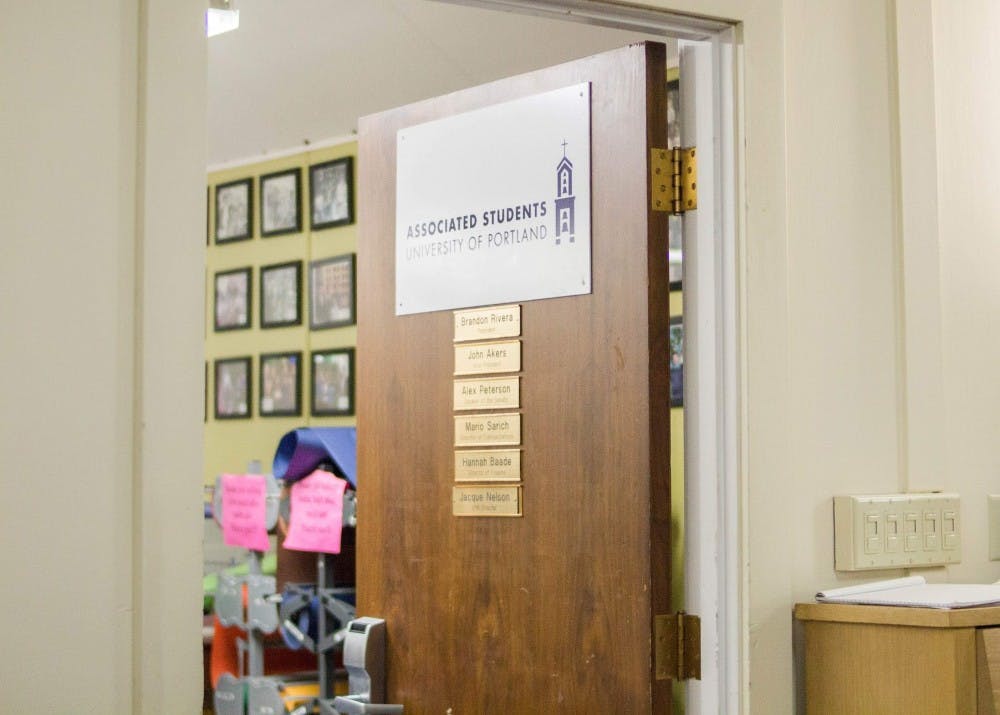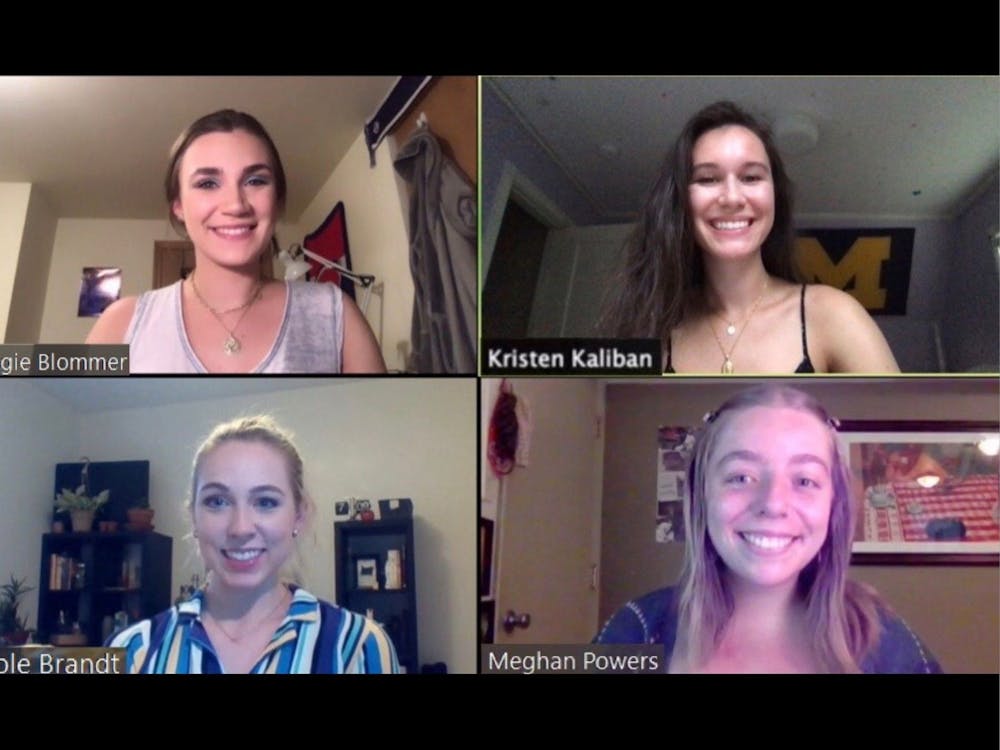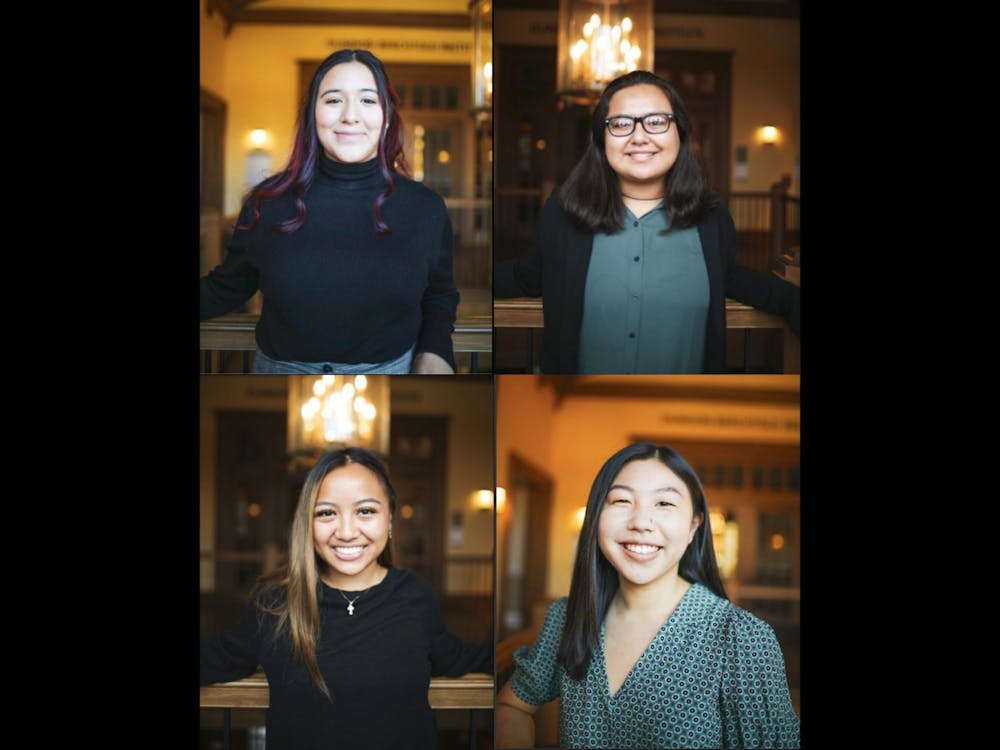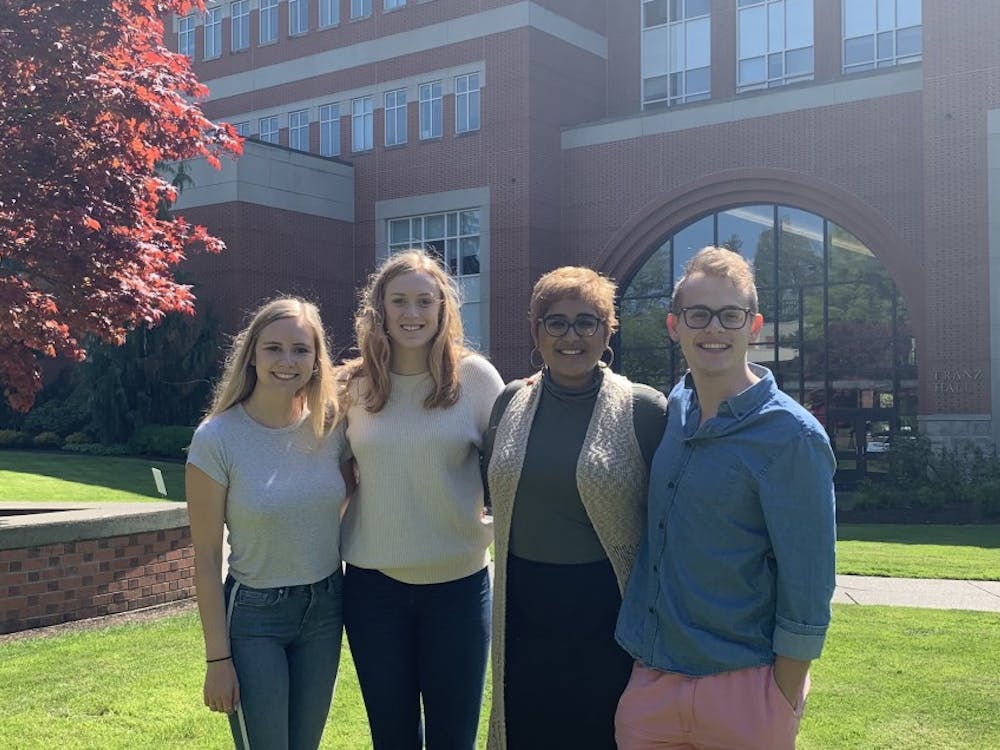The votes are in. At 8 p.m. Wednesday night, the 2019-20 Associated Students of University of Portland (ASUP) senators and executive board positions were elected. We have seen ASUP make strides this year with improvements in diversity, communication and bringing the campus together to address important issues. There are still areas for continued improvement for those elected into next year’s ASUP.
ASUP has a very important role on this campus. They are responsible for being a bridge between the student body and the administration, running a variety of programs and distributing funds to clubs and organizations each year.
Based on our experiences talking to groups around campus, there are a few areas that we believe should be brought to the forefront of ASUP initiatives next year. Those elected should continue to strive for improvements in the areas of diversity and inclusion, sustainability and communication.
Diversity and Inclusion
This year there have been many conversations about how to create improvements regarding diversity and inclusion on The Bluff. First, we recognize that The Beacon’s editorial board is not very diverse. We aim to add diverse perspectives to the conversations we have, whether that be through the people we interview, the sources we reach out to or the groups we profile. We have had the opportunity to work with many groups on campus and hear their stories. We want to advocate for more conversations and, most importantly, more action.
A diversity space was added to Buckley Center after a huge push from ASUP, students, faculty and staff. However, without enough student engagement and advocacy, the administration may not continue to make diversity a priority in finances and in the creation of physical spaces.
ASUP leadership should prioritize pushing for a bigger diversity center, not just a classroom. This should not only be a space with enough room for weekly meetings, but also a space for events like cultural nights, movie nights, dinners and a place to gather with other groups on campus to create relationships.
The current president and vice president Sitara Nath and Michael Gallagher ran on the platform of diversity and inclusion. During their term, they have been huge advocates for diversity, and that needs to continue in next year’s executive board.
We were especially impressed with ASUP’s role in the protest against Fr. Paul Scalia, the keynote speaker at UP’s Red Mass, who triggered controversy for his writings against homosexuality and support of an organization called Courage, which encourages people with same-sex attraction to be chaste. ASUP leaders demonstrated great leadership in organizing this protest and standing up for LGBTQ+ students on campus. ASUP should have that same spirit in standing up for diverse students and organizations next year.
This means not only having conversations with the administration but also maybe going after the donors themselves and reaching out to alumni to acquire more funds. Diversity and inclusion should not be a tagline or an initiative. It should be our priority and eventually our reality here on The Bluff.
Along with a larger diversity and inclusion space, we want to see more funding for diverse programs and clubs. Without enough money, our student leaders can only do so much.
In February, FASA and several other cultural clubs called on UP’s administration to provide more funding for multicultural clubs and programs on campus. As representatives of the student body, ASUP needs to advocate for these clubs to the administration and make them a priority when allocating funds. Everyone on this campus has a story and learning from one another will make our community stronger and increase our ability to make a change.
By giving multicultural clubs more funding we can provide them with the opportunity to educate others on campus and continue to foster a community of healthy dialogue.
Sustainability
Like diversity and inclusion, sustainability is one of the buzzwords that attracts people’s attention. Sometimes sustainability can be all about talk and not about action. Real improvements in sustainability need to be made on this campus, and there are many areas where ASUP could help to cut down UP’s footprint.
For example, what about starting at Mack's Market and EspressoUP? It is difficult to be waste-free, but if ASUP pushed Mack’s Market to reduce the amount of single-use plastic (a la Trader Joes) they bring in, UP could greatly lower its impact. This includes all of the fresh food such as produce and sandwiches wrapped in plastic.
It seems counterintuitive that plastic water bottles have been banned on campus for over eight years, but we still have fridges full of plastic Coke and juice bottles. ASUP could work to extend the ban beyond just plastic water bottles, as well as push for less single-use plastic in all eateries around campus.
Less waste is also possible at EspressoUP, which is an ASUP service. EspressoUP is a great event for students, but the waste it creates is avoidable. The event still uses plastic straws, even though the campus doesn’t, as well as one-use plastic cups for Italian sodas and iced coffees. Instead of continuing to use plastic straws and cups, EspressoUP could make the move to paper straws and biodegradable cups. Or better yet, they could encourage students to bring their own reusable cups and mugs.
A lot of environmental decisions we make come down to two things: cost and convenience. As busy college students, we are often running to the next class and if the good choice isn’t an easy choice, we might not make it. ASUP should strive to make “eco-choices” the easy choices.
The eco-container program and charging for to-go boxes are good steps, but neither have done enough. Instead, ASUP could work with Bon Appetit to switch to using completely biodegradable to-go materials, including biodegradable utensils.
It seems that with some prioritizing and budgeting, we have room to make eco-conscious decisions accessible to everyone on this campus. ASUP could prioritize this by pushing to put an eco-container and reusable cup in every freshman’s hand on their first day at UP free of cost.
Providing students with these resources means it is one less purchase a student needs to think about and the standard is set early on that UP values sustainability. It is important to instill that into UP students.
Communication
Kathleen Burks, the current director of communications, has made strides with improving communication between ASUP and students this year. ASUP has started streaming meetings on Facebook Live and Instagram, and has improved its weekly newsletter. We hope that the future director of communications continues to build upon what ASUP has improved this year.
But the communication between senators, in particular, and groups that they represent could improve. Who are your class senators? Who are your college senators? If you are like most people on this campus, you might have no idea.
ASUP is supposed to be representative of the student body, but the senators cannot accurately represent the needs and wants of the student body without knowing their constituents, and vice versa.
This election season, some of the ASUP candidates started Instagram accounts for their individual campaigns. This is a great way to reach students. Senators could use modern forms of communication to update their constituents on policies and services. Instead of having hard-copy suggestion or comment boxes, have constituents slide into ASUP’s DM’s with suggestions.
If students don’t know who represents them and they don’t have an easy way to get in contact, then there is no way ASUP can make choices representative of the greater UP community.
The ASUP leadership has done a great job this year. They have pushed for real change on campus and we admire their ability to get people to listen and take action. We want to see that same energy going forward by every newly elected member in ASUP.








